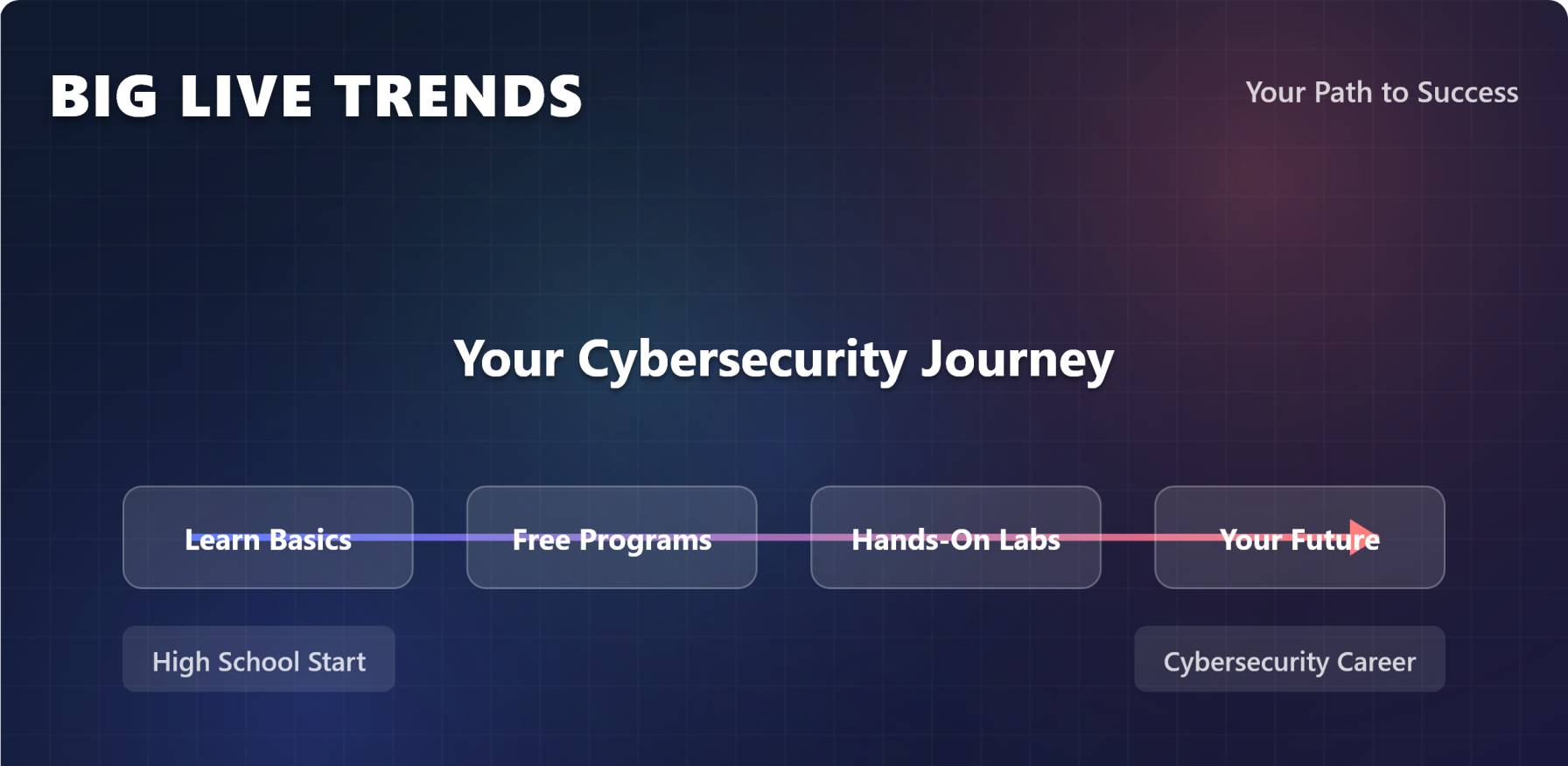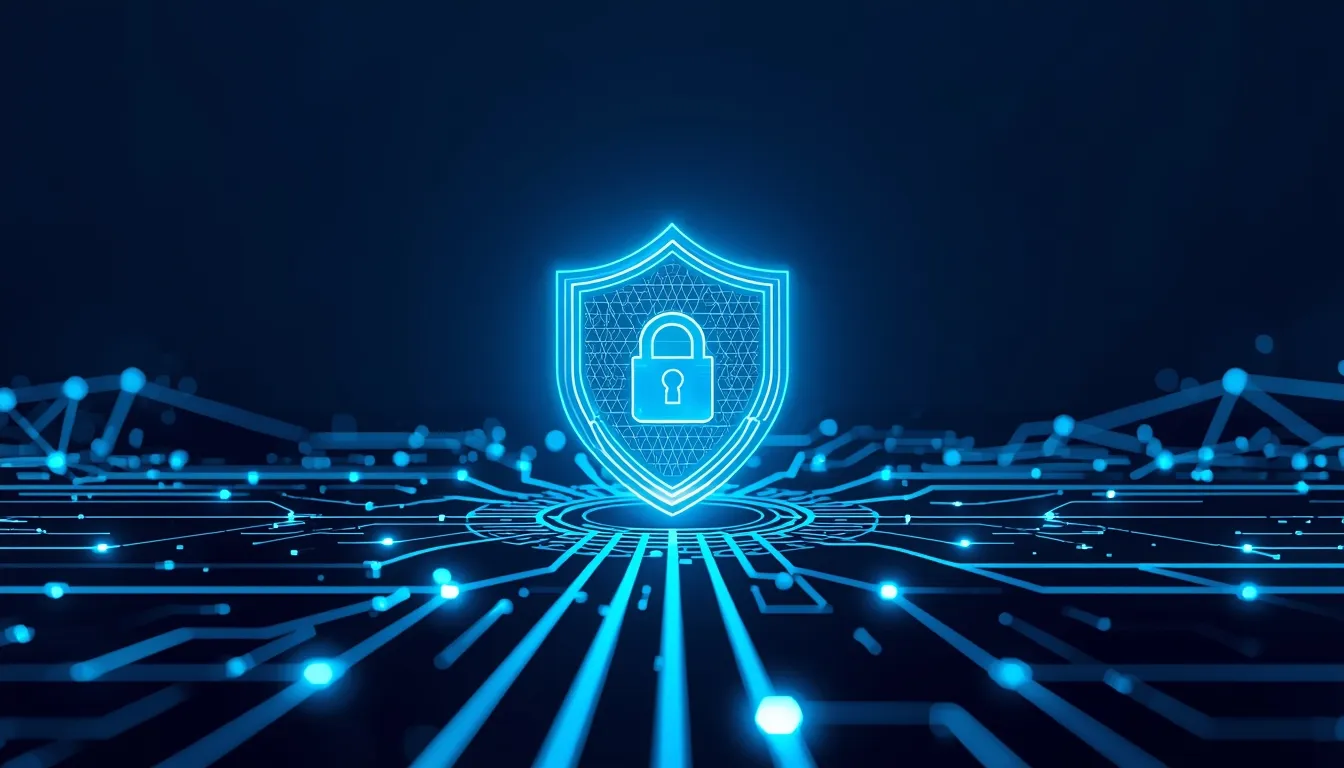
Ever feel like all the cool, high-paying jobs require a secret decoder ring and eight years of college? You’re not alone. When you hear "cybersecurity," you probably picture some movie hacker in a dark room. The truth? It’s just people—smart people, but still just people—protecting data. Think of it like being a digital bodyguard. If you're in high school and already messing around with code or just obsessed with locking down your Discord server, this whole field is basically an open door. And no, you don't have to wait until college to walk through it. This guide is your cheat sheet. We're going to talk about the best ways to learn, where to find free summer programs in 2026, and how to get a realistic idea of a cybersecurity analyst salary—because knowing what you can earn helps, right? Stop waiting for permission. Start building your skills now.
What is "Cybersecurity High School" Anyway?
It’s not an actual school you can enroll in (unless your district is super ahead of the curve). Think of it as a mindset and a skill set. It means you choose to learn the digital security stuff while you're still in high school, not waiting until college or some training camp.
Why Start Learning Cybersecurity Now
Waiting until you graduate is a huge mistake. Here’s why starting in high school matters:
- You get a massive head start: Your friends are taking easy electives. You're learning a skill that companies are begging for. When you apply to colleges or your first job, you won't just have good grades; you'll have proof you know how networks work.
- It's basically a puzzle: If you like gaming, solving riddles, or finding loopholes, this job is just that, but with computers. It's challenging, but in the fun, "I figured it out!" way.
- It can save your future self money: The more you learn now, the faster you can get into the field. If you nail an internship in college, you could graduate with zero debt and a high-paying job lined up. Seriously.
I remember my own high school experience. I thought I needed some expensive private course to learn to code. Nope. I just needed a computer and Google. The resources are there now—and a lot of the best ones are free.
What Should a High Schooler Learn First?
Don't jump straight into the scary-sounding hacking stuff. You need the fundamentals first. Think of it like building a house: you can't worry about the roof before the foundation is poured.
- The Internet Basics: How does data travel from your phone to Google's servers? What's an IP address? Learn about TCP/IP.
- Operating Systems (OS): You use Windows, Mac, or ChromeOS, but you should learn Linux. It’s the OS most security pros use. You can install it for free on an old laptop or even in a "virtual machine" on your current one.
- A Simple Coding Language: Try Python. It's super easy to read and used for automating almost everything in cybersecurity. You can start with basic scripts in a weekend.
- Network Security 101: This is about firewalls, VPNs, and why you should never connect to that free Wi-Fi at the coffee shop.
Mini-Takeaway: Start with the basics—networking and Linux. They’re the groundwork for everything else.
Where to Find Your "Textbook": The Best Free Learning Paths
Forget buying an expensive book. The best "textbooks" for cybersecurity are online, always updated, and usually free.

The Self-Paced, Always-On Options
You can learn at 2 AM in your pajamas with these. They’re organized and let you move at your own speed.
- The CompTIA Security+ Syllabus: This isn't a textbook, it's a certification. But the outline of what they test you on is the perfect roadmap. You can find this outline free on their website. It tells you exactly what a junior analyst should know.
- Codecademy & Coursera: Many platforms offer their basic courses for free (you just pay if you want the certificate). Search for things like "Introduction to Linux" or "Python for Everybody."
- YouTube: Seriously. Search for channels that do "TryHackMe Walkthroughs" or "Network+ explained." It's visual, and you can pause it whenever you need. It's basically a free classroom.
Personal Experience: The first time I tried to understand how a firewall worked, I read a dense article and felt completely lost. Then I watched a 10-minute animated video on YouTube that compared it to a bouncer at a club. Suddenly, it clicked. Use the resources that make it click for you.
Hands-On Labs and Challenges
Reading about security is like reading about riding a bike—you have to get on the thing and try it. These sites let you practice legally and safely.
- TryHackMe & Hack The Box Academy: These platforms are great. They give you a safe, private network, a goal (like "find the hidden file"), and you use real tools to solve it. A lot of their introductory courses are completely free and designed for total beginners.
- PicoCTF: This is a free, annual "Capture The Flag" competition put on by Carnegie Mellon University. It's designed specifically for middle and high school students. The challenges are tough but educational, and doing it is a huge resume help.
The Golden Ticket: Free Summer Programs 2026
You want to stand out, right? Doing a structured summer program is the best way to do that. They give you a taste of college life, let you meet people who are as geeky about this stuff as you are, and look great on college applications.
3 Programs You Need to Look Into (and Why They're Free)
These programs often get money from government agencies (like the NSA or DoD) or major tech companies who want to grow the talent pool. The catch? You have to apply early. Like, December/January early.
- GenCyber: This is the big one. It gets funding from the NSA and the National Science Foundation. They sponsor free summer camps all over the country. The goals are simple: make cybersecurity fun, teach ethical ways to do things, and get more high schoolers interested. They have separate camps for beginners and more advanced students.
- CyberStart America: This is a national competition and training program. It gives you free access to their advanced training platform, which is packed with gamified security challenges. If you do well, you can win scholarships and get invited to the CyberStart National Championship.
- Local University Camps: Your state university probably has one. Search for "[Your State] + High School Cybersecurity Camp." Sometimes they have a small fee, but they often give out scholarships or full fee waivers if you just email and ask.
Tip for Applying: When they ask why you want to join, don't write some fancy essay about "changing the world." Be direct. Talk about the specific things you’ve already tried to learn (like trying out Python or setting up a virtual machine) and what specific skill you want to learn in their camp.
The Reality Check: Cybersecurity Analyst Salary
Let's talk money. This is a big reason people look at this field, so let's be realistic about what you can earn.
How Much Can You Actually Make?
When you look up "cybersecurity analyst salary" online, you'll see a huge range. That's because the title covers a ton of different jobs, but here's the honest breakdown:
- Starting Salary (Entry-Level/No Experience): You're likely looking at $60,000 to $85,000 right out of college, depending on where you live (San Francisco pays more than Omaha, for example). If you get an associate's degree or a few certifications instead of a four-year degree, you might start a little lower, but you'll get years of work experience faster.
- Mid-Career (5-10 Years Experience): This is where it gets really good. A solid analyst or engineer with a few years of work is easily pulling in $100,000 to $140,000.
- Senior/Specialist Roles: If you specialize in something super tricky, like penetration testing (ethical hacking) or cloud security, you can push past $150,000 to $200,000+.
The key is that the growth rate is fast. You don't wait 20 years to hit a six-figure salary; you can get there in 5-7 years if you keep learning and move jobs smart.
It's Not Just a Salary, It's Job Security
The best part? Everyone needs security. Banks, hospitals, governments, and even that local coffee shop with the fancy app. Every time there's a big data breach in the news, job openings in this field jump up. The need for people isn't going away. It's a field built for people who like to solve problems and want to know their job will still exist in 10 years.
What Not To Do: Common Mistakes High Schoolers Make
We all mess up when we start. Here are the things you should actively avoid, because they just waste your time.
- Don't buy a bunch of books: Technology changes too fast. That "2023 Guide to Hacking" is already useless. Stick to online, free, constantly updated resources and labs.
- Don't only focus on theory: You need to do stuff. Watching a video about Linux commands doesn't make you a Linux user. You have to open the terminal and type the commands yourself, break things, and fix them.
- Don't worry about the four-year degree (yet): Yes, you probably need a degree eventually, but don't stress about which college or major right now. Focus on proving you can do the work. An acceptance letter to a good school means less than a successful internship or a solid portfolio of challenges you've solved.
- Don't break the law: Ethical hacking is a job; illegal hacking is a felony. Period. Use the free lab environments (like TryHackMe). If you start doing illegal things on the internet, your cybersecurity high school journey will end before it really starts.
Your Next Steps: A 30-Day Cybersecurity Challenge
You don't need to quit everything and dedicate your life to this. Just try a few concrete steps this month.
- Install Linux: Get VirtualBox or VMWare (they’re free) and install a clean version of an easy Linux distro, like Ubuntu, in a virtual machine. You can mess it up, and it won't hurt your main computer.
- Learn Python: Take a free course on Codecademy or find a "Python for Beginners" playlist on YouTube. Learn how to write a simple script that prints something or asks you a question.
- Create a TryHackMe Account: Sign up for the free part and complete their "Pre-Security" or "Introduction to Cyber Security" learning path. It will guide you through all the networking basics.
You'll figure out pretty fast if you love it or hate it. If you love it, you're set. If you hate it, you only wasted a few weeks, not a lot of money on a college major.
Final Thoughts
The single biggest thing separating people who get the job and people who don't is simple: the people who get the job started doing the work earlier.
This field isn't about being a math genius or a college dropout hacker. It's about being curious, enjoying puzzles, and being willing to spend a few hours figuring out why something doesn't work. The path is clear: learn the basics, get hands-on experience with free stuff, and apply to those summer programs to build your network. Your future self, the one pulling down that great cybersecurity analyst salary, will be glad you didn't wait. Now, go install Linux.
Frequently Asked Questions (FAQs)
Q: What's the difference between coding and cybersecurity?
A: Think of it like a car. Coders are the ones who build the car, designing the engine and the radio. Cybersecurity pros are the ones who put on the alarm system, bulletproof the doors, and check for weak spots in the design. They are related, and knowing how to code (especially Python) makes you a much better security expert because you can read the code you’re trying to protect.
Q: Do I need to be a math genius to work in cybersecurity?
A: No, you don't. You need basic math for things like network addressing, but this isn't a job that requires complicated math every day. What you really need is logic. You have to think step-by-step and have the patience to troubleshoot an issue for hours. That's more important than knowing how to solve a complicated equation.
Q: Can I get a job as a cybersecurity analyst without a four-year degree?
A: You can. It's harder, but totally possible. Instead of a degree, you'd focus heavily on industry certificates like CompTIA Security+, CEH (Certified Ethical Hacker), or certificates from Cisco or Microsoft. These prove you have the technical skills. You’d also need a portfolio of projects and successful lab completions. A degree is the fastest path, but certificates plus experience is a good second choice.
Q: Are there actual cybersecurity high school classes I can take?
A: Yes, in some places. Check your school's Career and Technical Education (CTE) department. Some high schools offer intro classes or even let you take a community college course that counts for both high school and college credit (called "dual enrollment"). If your school doesn't offer it, look at online options from sites like edX or Coursera.
Q: Is it safe to practice hacking on the internet for fun?
A: No, absolutely not. It's illegal to test your skills on any computer, website, or network you don't own or haven't been given clear, written permission to test. Use the safe, closed-off, and legal virtual lab places like TryHackMe or Hack The Box. They are designed for you to practice finding weaknesses without getting into trouble.
Q: What's the best way to stand out when applying for those free summer programs?
A: Show, don't just tell. Everyone writes an essay saying they're "passionate." You need to prove it. In your application, list specific things you've already done: "I completed the entire Pre-Security track on TryHackMe," or "I built a virtual machine and learned 10 basic Linux commands." They want to see that you've already started the work on your own.










